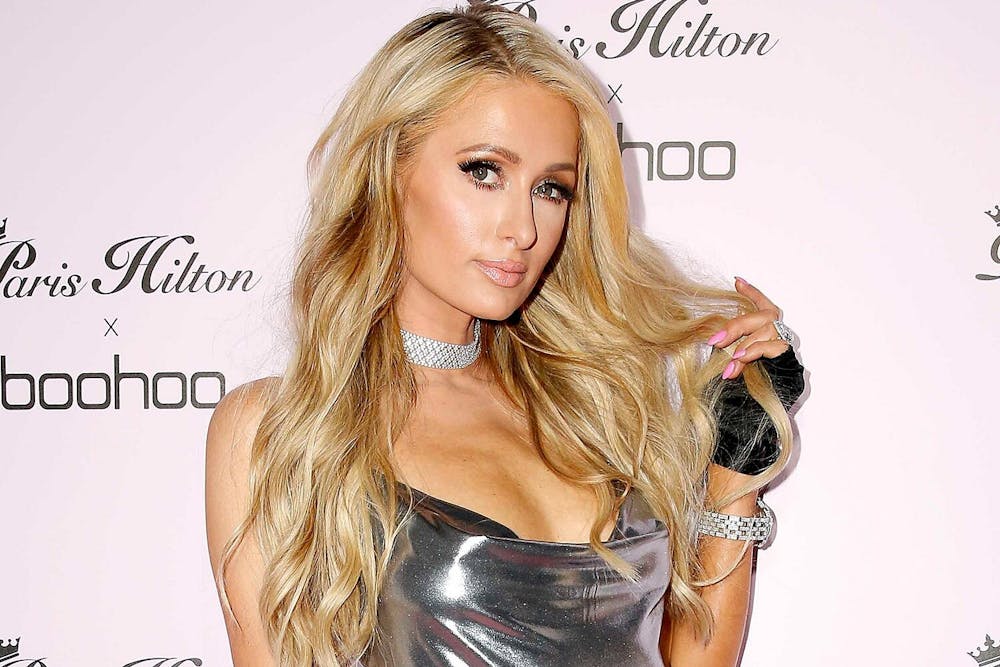I find myself preaching about empathy until it comes to celebrities. I’ve always accepted the screen as a barrier that protects stars from the public’s criticisms, and in turn, protects the public from any guilt.
But when the public can directly message these stars, the barrier is removed. Celebrities become vulnerable to a constant stream of hate and the pressure to present a simultaneously perfect and honest version of themselves. This celebrity-fan relationship unleashes a cycle in which their fear of authenticity creates a lack of public compassion. Alexandra Haggiag Dean’s documentary “This is Paris” reveals how empathy is less dependent on direct interaction with individuals than understanding and learning from their lives.
As with most biographical documentaries, old photos and videos guide curious viewers through the Paris Hilton’s past. The scenes of Hilton now, though, captured my eye: The blond icon glides through her grandfather’s Victorian-inspired mansion, complete with Greek statues, dazzling crystal wall sconces and a royal cream wardrobe waiting to greet a princess. She never lost her extravagant taste, but her style matured with her.
The socialite’s glamorous lifestyle is nothing new to the public eye — rather, it is exactly what viewers expect from the 2000s pop culture princess. This documentary instead allows Hilton to present a genuine image of the adult Paris and begin a public healing from past trauma. Working with writer and director Alexandra Dean, she diverges from the toxic industry that spent decades invested in her partying, and defines her own narrative and struggles.
Struggles? I know. How can this pretty, blond, skinny, famous, stylish hotel heiress have a rough life? What has she been through? And most of all, why would I care?
Tabloids have been talking about Hilton longer than I’ve been able to speak, but it was not until this summer when I binged “The Simple Life” that I idolized Paris. I, like millions of Americans in the early aughts, was fascinated by the blind vanity of Hollywood’s children. How could anyone be so entitled? Do they appreciate their luxurious consumer wonderland? Yet, this fascination manifested in a subconscious emulation as I clandestinely perused mini-skirt racks and (un)ironically described everything — hot and not — as the former.
I adored her character. But she was just that — a character. Hilton created an artificial “rich dumb blonde” persona that turned on with the cameras and tattooed her image in the minds of audiences. In “This is Paris,” she drops the slip dresses and vocal fry in exchange for control over a blossoming DJ career and successful cosmetics line — in exchange for herself.
But what does it mean to be yourself when the world is invested in your identity? How do celebrities act when they are not on screen, and why does it matter if the world never sees this version? Hilton was the blueprint for the now-ubiquitous influencer: the celebrity who is famous for being famous. From the socialite-turned-entrepreneur Kardashian sisters, to the controversial Caroline Calloway, to lip-syncing TikTok stars, influencers are the most heavily criticized for an assumed lack of talent and narcissism characteristic of the aptly named “Me me me generation.” As if the 2000s subjects weren’t scrutinized under the TMZ microscope enough, social media expands this environment in which stars are paradoxically expected to provide content and accept direct, unforgiving, unfiltered criticisms. Unflattering pictures will be deconstructed for their flaws, as will flattering ones for their egoism. And when they try to do something for others, such as this year’s celeb-packed “Imagine” cover, they are criticized for trying to ride a moral ground as high as their ego.
Acts of kindness are often viewed as publicity stunts, attempts to show that millionaires are real people with real lives who care about real issues. This perspective is valid, but if mishandled it can diminish the importance of celebrities using their platform for a good cause and the personal reasons they are passionate about an issue.
When Hilton was 16, she was sent to Provo Canyon School, a behavioral health center in Utah designed to treat troubled teenagers. The methods used to treat these kids during the time of Hilton’s stay were abusive: Residents were essentially kidnapped from their homes, beat, scolded, medically brain-fried and in some cases — such as Paris’ — sent to solitary confinement for disobeying their therapists.
Paris was silent about the abuse and its consequent nightmares for decades, but she used this documentary to publicly bring attention to the issue and reconnect with other survivors from the facility. Each woman holds a sign explaining how Provo traumatized them, each resolute stare and red-taped mouth breaking her silence. “This is Paris” won’t end child abuse. But it will push the conversation.
Celebrities are not exclusive to abuse, but they can provide a platform for survivors. They can be a spokesperson and an inspiration, an idol born out of an icon. Hilton is determined to bring light to important issues and make a name for herself based on her own merit and ambition. Granted, the privileges of her family name are sure to help, but she still has to prove herself in the male-dominated DJ field.
Public figures are characters, and most often, humorous, dramatic, controversial ones that deserve our laughter and confusion. But reality stars — influencers — ask us to draw the line between characters and people. I don’t think anyone’s found that line yet, but we can start by acknowledging it exists. By acknowledging the universality of empathy — even for those behind the screen.
Get The Chronicle straight to your inbox
Sign up for our weekly newsletter. Cancel at any time.

